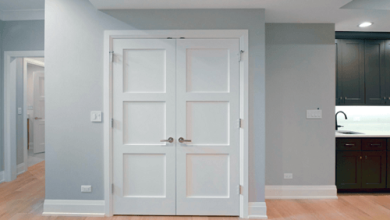Why You Should Never Skip an Eye Exam
Many people feel they don’t need an eye exam if they aren’t experiencing any issues. However, every person needs an annual eye exam. Why is this checkup so important?
Misconceptions About Eye Health
If a person isn’t having any issues, their eyes are fine, or so they believe. However, annual eye exams allow doctors to diagnose problems at an earlier stage when those issues are easier to treat. In addition, men and women often assume an eye doctor only considers their ability to see during the exam. The doctor looks for much more than this and can find general health problems during the exam. Both eye problems and general health issues often come with no symptoms other than what the doctor sees in the eyes. Take time to schedule an eye exam today for peace of mind.
Protecting Your Overall Health
Most people don’t know that systemic diseases often lead to eye issues. For example, a person might visit the eye doctor because they can no longer see clearly. They believe their vision is worsening when the problem is uncontrolled diabetes. Thyroid issues often include eye symptoms, as does high cholesterol. A person may visit the doctor for a new pair of glasses only to learn they have high blood pressure or multiple sclerosis. By having an annual eye exam, a person can have someone other than their regular physician watching over their health.
Eye Diseases
Nevertheless, most people visit the eye doctor to have their vision checked. Disease prevention remains a priority with your vision. Macular degeneration and glaucoma often come with no symptoms. It isn’t until a person has lost part of their vision that they learn they have a disease. For example, doctors say glaucoma silently steals a person’s sight thanks to the lack of symptoms. The doctor has special equipment to detect these problems early.
What the Doctor Tests
During the exam, the doctor tests the patient’s visual acuity. They examine the optic nerve and retina to learn if they are functioning properly and test the pressure in the eye. At this time, they look to see if the eyes move together and are properly aligned, and they check peripheral vision. The doctor also looks for any freckles, unhealthy spots, or other indications of malignancy during the exam. In addition, the doctor checks the health of the cornea and looks to see if cataracts are forming.
Visual Acuity
When a person visits the eye doctor, they may need corrective lenses. Upon completion of the exam, the doctor writes a prescription for glasses or contacts. Many people visit the doctor thinking they see clearly only to learn this isn’t the case. Their visual acuity is declining. As the changes happen gradually, a person might not even notice until the decline is significant. The exam differs from a vision screening, as the exam is very comprehensive.
However, if problems arise between annual eye exams, call the eye doctor. For example, if there is any eye pain or swelling, see the doctor as soon as possible. The same holds true if dark or bright spots appear in the eyes or you see flashes of light. This could suggest a problem with the eyes, and early intervention provides the best outcome. Call for your appointment today. Your eye health is too important to leave to chance.












